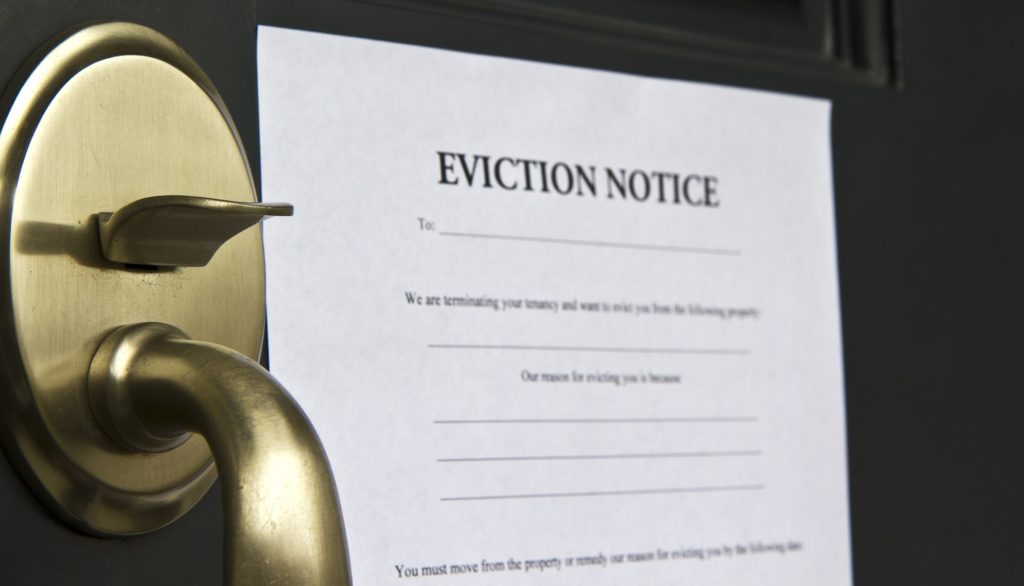|
|
Things happen in life, and sometimes that means you can’t afford all the basic necessities for the month. In a worst case scenario, that may mean that you can’t pay the monthly rent for your room or apartment on time.
One of the most common reasons for eviction is nonpayment of rent. If you’ve found an eviction notice letter on your door, try not to panic. It doesn’t mean you’re out of a home, at least not yet.
Here’s what an eviction notice means and what your next steps should be.
What Is an Eviction Notice Letter?
Eviction notices are the written demand of a landlord to move out within a certain amount of time.
They can be as a result of:
- damages caused
- violating your rental contract
- not paying your monthly rent
Not every notice has the same length of time to leave. For example, an eviction notice in North Carolina must give the tenant a minimum of 10 days to pay the rent due or vacate the premises. However, in other states, an eviction notice allows tenants 5-7 days to pay rent or move out. In some states, the timeline can be as short as three days.
Additionally, your time does not start from the moment you find an eviction notice on your door, but from when it was posted.
The Meaning of Evicted
The most common grounds for eviction of a tenant is non-payment of rent. Eviction can also occur if a tenant has violated their lease in some way, for example, causing property damage or allowing unapproved guests to live at the property.
If there’s illegal activity, then that’s a risk to the health and safety of neighbors and can be cause for eviction as well.
Finally, tenants can get evicted if they aren’t offered another lease. Tenant holdover happens when they refuse to leave.
Eviction has a negative impact on your credit report and could cause you to be viewed as a liability by future landlords. The legal process could also leave you in deeper debt than before, particularly if you are sued for legal fees or damages.
Your Options
The first step you should take when served an eviction notice is to contact your landlord. If there are any outstanding fees, pay them or at least inform them of when they can expect payment.
If you can’t afford to make any type of payment, then seek financial assistance. There are organizations that can provide temporary help.
If you’ve paid your rent, your landlord can’t legally evict you unless they have other cause. In a worst case scenario, you will have to go to court to dispute the eviction.
Consider hiring an attorney to learn what steps to take as you deal with a potentially unlawful eviction.
Dealing With an Eviction Notice
Finding an eviction notice on your front door is a scary thing. Maybe you’ve avoided paying your rent and were hoping your landlord wouldn’t notice. Or maybe this came out of nowhere.
Either way, getting evicted had have long-term effects on your livelihood outside of losing a place to rest your head. Make sure to talk to your landlord before seeking a legal defense, because they don’t want you to become a holdover tenant or damage their property.
Given these risks to the landlord, they just might be willing to explore a compromise that works for you and for them.
Want to learn more? Join nearly two million other readers who are learning Cade’s secrets, like how to increase income, invest for cash flow, negotiate a raise, and so much more.
